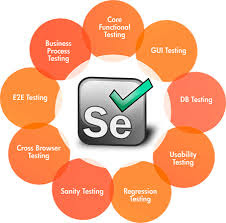The Importance of Artificial Intelligence in medical diagnosis
The integration of Artificial Intelligence (AI) into the medical field marks a revolutionary step towards enhancing healthcare delivery and improving patient outcomes. AI's ability to analyze vast amounts of data quickly and accurately, predict outcomes, and assist in various medical tasks is transforming medicine in unprecedented ways.
Personalized Treatment Plans
Predictive Analytics and Preventive Care
Streamlining Administrative Tasks
Enhancing Medical Research
Ethical Considerations and Challenges
One of the most significant contributions of AI in medicine is its role in diagnostics. Traditional diagnostic methods often rely heavily on a physician’s experience and subjective judgement, which can sometimes lead to errors or delays. AI, on the other hand, leverages machine learning algorithms to analyze medical images, pathology slides, and patient histories with high precision. This capability allows for more accurate and timely diagnoses, ultimately improving patient care.
For example, in the field of radiology, AI systems have proven to be highly effective in detecting anomalies in X-rays, MRIs, and CT scans. In some cases, these systems can even outperform human radiologists in terms of speed and accuracy. This capability is crucial in identifying conditions like tumors, fractures, and infections at early stages, enabling prompt treatment and better patient outcomes.
Similarly, in pathology, AI algorithms assist in analyzing tissue samples and identifying cancerous cells. By automating this process, AI reduces the chances of human error and provides more reliable diagnoses. This not only saves time but also ensures that patients receive appropriate treatment without unnecessary delays.
Personalized Treatment Plans
AI's ability to process and learn from vast datasets allows for the creation of personalised treatment plans tailored to individual patient needs. This personalised approach is particularly beneficial in complex medical fields such as oncology and chronic disease management.
In oncology, AI can analyze genetic information and historical treatment data to suggest targeted therapies for cancer patients. By considering a patient's unique genetic makeup and treatment history, AI can improve the effectiveness of treatments and potentially increase survival rates.
Similarly, for chronic conditions like diabetes and heart disease, AI can predict patient responses to different treatments and recommend lifestyle changes to manage the disease better. This personalised approach not only improves patient outcomes but also reduces healthcare costs by minimizing unnecessary interventions.
Predictive Analytics and Preventive Care
Predictive analytics is another area where AI is making a significant impact in medicine. By analyzing historical patient data, AI can identify patterns and predict the likelihood of future health issues. This capability is vital for preventive care and reducing hospital readmission's.
In terms of preventive care, AI can identify patients at high risk for diseases such as diabetes, heart disease, or stroke. By detecting these risks early on, healthcare providers can intervene with appropriate preventive measures, potentially avoiding the development of these conditions altogether.
Furthermore, predictive models powered by AI can forecast which patients are likely to be readmitted after discharge. By identifying these individuals, healthcare providers can implement strategies to reduce readmission rates, such as providing additional support or adjusting treatment plans.
Streamlining Administrative Tasks
AI also plays a crucial role in streamlining administrative tasks, thus allowing healthcare professionals to focus more on patient care. By automating certain processes, AI reduces the burden of administrative work and improves overall efficiency.
For example, AI can automate the entry and management of Electronic Health Records (EHRs). This automation reduces the time clinicians spend on documentation, allowing them to dedicate more time to patient care. Additionally, automated scheduling systems powered by AI can optimise appointment bookings, reduce wait times, and improve the overall efficiency of healthcare facilities.
Enhancing Medical Research
The potential of AI extends to medical research, where it accelerates the discovery of new drugs and therapies. By analyzing large datasets from clinical trials and genetic research, AI can identify potential drug candidates and predict their success rates. This capability significantly shortens the time required for drug development, potentially bringing life-saving treatments to patients faster
Ethical Considerations and Challenges
While the benefits of AI in medicine are substantial, it is crucial to address ethical considerations and challenges that arise with its implementation. These considerations include data privacy, bias and fairness, and regulatory approval.
Ensuring the privacy and security of patient data is paramount when utilizing AI in medicine. Robust regulations and secure data handling practices are essential to maintain trust and protect patient confidentiality.
Bias and fairness are also important factors to consider when developing AI systems for healthcare. AI systems must be trained on diverse and representative datasets to avoid biases that could lead to disparities in healthcare delivery. By addressing these biases, AI can contribute to more equitable and inclusive healthcare outcomes.
Furthermore, regulatory approval is necessary to ensure the safety and efficacy of AI applications in medicine. Rigorous testing and validation processes are essential to assess the performance and reliability of AI systems before widespread adoption. This ensures that AI technologies meet the necessary standards to provide safe and effective healthcare solutions.
Conclusion
The integration of AI into the medical field offers immense potential to enhance diagnostic accuracy, personalize treatment plans, prevent diseases, streamline administrative tasks, and accelerate medical research. As technology continues to evolve, it is essential to address ethical considerations and ensure that AI is used responsibly to maximize its benefits for patients and healthcare providers alike.
AI in medicine is not just a trend; it is a transformative force that is reshaping the future of healthcare. As we continue to harness its potential, we move closer to a world where healthcare is more efficient, effective, and accessible for all.
What are your thoughts on the role of AI in medicine? Share your views in the comments below!
Author: [Banu Geddam]
Date: [03-07-2024]








Comments
Post a Comment